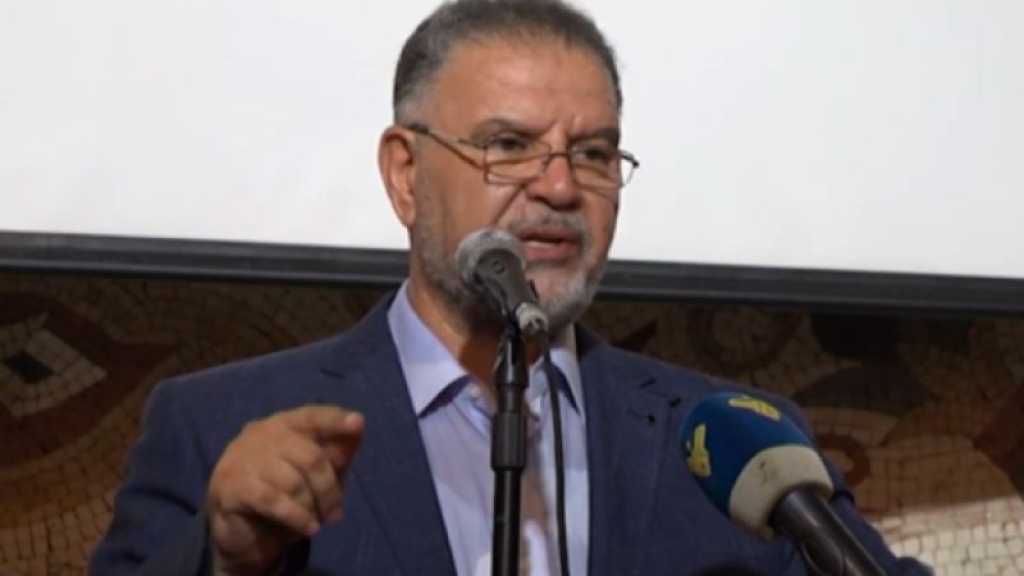“Israeli” Economy in Crisis Post-War

By Sara Alayan
With the Gaza ceasefire taking effect—and two months earlier in Lebanon—the battered “Israeli” economy has come to light, revealing the catastrophic impact on its various sectors. According to economic experts, after nearly 15 months of war, the Zionist economy is suffering immense losses, with negative repercussions expected to last for many years.
According to Yemeni economic analyst Dr. Rashid Al-Haddad, the economic losses reported by Zionist experts and analysts—considered the most severe in the entity's history—have been revealed by "Israeli" newspapers and several statistical centers, despite the media ambiguity surrounding the issue. This "ambiguity" has led Zionist analysts to question the actual extent of the disaster that has befallen their economy.
Discussions of economic losses have been accompanied by numerical statistics issued in this context. Financial indicators, led by the financial deficit in the occupied entity, are at the forefront. In 2024, the deficit reached 6.9% of GDP, amounting to approximately 136 billion shekels [$36.1 billion]. However, the “Israeli” newspaper Calcalist disputed this, estimating the real deficit at 7.2% of GDP, or 142 billion shekels [$37.7 billion].
Dr. Al-Haddad also notes that Zionist officials declared $67.5 billion in war-related losses, but this figure is inaccurate. Nevertheless, the enemy has never suffered such losses in any previous Arab-“Israeli” conflict.
The financial deficit comes amid the occupation’s growing budget deficit, which stood at 4.5% at the beginning of last year, soared to 8.2% in November, and stabilized at 7.7% in December. According to enemy statements last month, the budget deficit reached 19.2 billion shekels [$5.2 billion], primarily due to increased war expenses in Gaza and Lebanon. The same newspaper indicated that the cost of the war on Gaza had reached 250 billion shekels [$67.57 billion] by the end of 2024.
The economic analyst also notes that the entity’s economic growth index dropped to 0%, despite the enemy’s goal of achieving 6% growth in 2024. Reports from enemy institutions indicate that the budget deficit has now reached $41 billion.
Discussing various matters from financial indicators to service and production sectors, we begin with the tourism sector, which the "Israeli" economy heavily relies on. Due to the war in Gaza and other fronts, the "Israeli" tourism industry deteriorated by more than 70% last year compared to 2023. The number of tourists and visitors dropped to 885,000 during the first 11 months of 2024, marking an 80% decline.
According to "Israeli" data, about 60,000 small and mid-sized businesses were liquidated in 2024, an increase of 50% compared to previous years.
The construction sector was also not spared from immense losses, suffering a near-total shutdown. Nearly 50% of construction sites were halted due to a severe labor shortage of 140,000 workers. The delay in new building projects has extended to 36 months, while weekly losses in this sector have surged to $644 million.
Moreover, the "Israeli" economy is heavily dependent on investments across various sectors. This sector has faced severe negative repercussions, particularly in technology. Investor confidence has plummeted due to the deteriorating security situation and instability, prompting many to withdraw from high-risk investments, which has led to a significant decline in foreign investment.
In a parallel context, a report by the "Israeli" economic newspaper Globes indicated a 6% decline in capital investments in startup companies from October 2023 to September 2024, along with a sharp 30% drop in both foreign and domestic investments. Dr. Al-Haddad notes that 49% of companies have canceled their investments.
The agricultural sector has also suffered losses, particularly as much of the entity’s supply of fruits and vegetables previously came from the Gaza envelope, which has now turned into an open battlefield. The northern region, home to the highest percentage of agricultural land and major factories in the occupied entity, has also been severely affected.
Although discussions on poverty rates in the Zionist entity are rare, recent reports indicate a worrying trend. According to the 2024 Poverty Report in "Israel", released a month ago, about a quarter of "Israelis" now live below the poverty line. Additionally, 65% of "Israelis" have been financially affected, posing a serious threat to social stability among Zionists.
According to Dr. Al-Haddad, these economic losses have been compounded by the maritime blockade imposed by Yemen, which led to the closure of the "Eilat" port for nearly a year. As a result, import rates have dropped by 42%, as per Globes newspaper.
This crisis has been further aggravated by the global economic boycott, imposed as a humanitarian response to the entity’s crimes. Many international companies have shut down their branches in "Israel" and withdrawn investments, leading to widespread layoffs and a surge in unemployment rates.
The economic repercussions also extend to social and psychological costs, including expenses for trauma treatment and social care for settlers affected by the war. According to a study published by the Jewish Charitable Giving Electronic Website, these costs are estimated to exceed $50 billion over the next five years, as part of a broader initiative to address the repercussions of October 7.
The current repercussions are undoubtedly shaping the future trajectory of the "Israeli" economy. Analysts predict that a return to the entity’s past 5 to 10 years of economic prosperity is nearly impossible, even with substantial American financial support.
One of the most significant long-term challenges is the growing global boycott of "Israeli" products. The entity’s criminal image has fueled a worldwide movement advocating for permanent economic disengagement, making boycotts a deeply ingrained popular culture.
Meanwhile, the Zionist entity is attempting—under Trump’s policies and through the “Abraham Accords”—to open Arab markets and enhance trade exchanges. However, these efforts will face significant obstacles in the coming years. Additionally, the entity has lost the trust of both domestic and foreign investors, a confidence it is unlikely to regain, even if it offers significant economic incentives.
Comments




